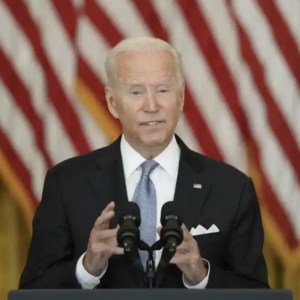President Joe Biden’s State of the Union message can be expected to confront many of the problems challenging our nation and world today, as well as to celebrate past victories and present opportunities.
FiveThirtyEight has reported 71 percent “of the judges [who Biden has] successfully appointed to the federal bench are nonwhite, and the overwhelming majority (75 percent) are also women—far outstripping previous presidents.” Russell Wheeler concluded for the Brookings Institution last month that Biden has “nominated by any measure the most demographically diverse set of judicial candidates in history,” including the appointment of “an unprecedented number of former public defenders.”
And unlike former President Donald Trump—who chose more than a half-dozen judicial nominees rated by the ABA as not qualified—none of the more than 70 nominees evaluated so far under Biden have been rated as less than qualified, with at least 50 rated unanimously well qualified.
Along multiple diversity vectors—including race, ethnicity, gender, and professional background—Biden has taken great strides toward fulfilling his pledge to “Appoint U.S. Supreme Court justices and federal judges who look like America,” a sharp contrast to Trump’s dismal record.
According to an Associated Press analysis, “over 86 percent of the more than 200 federal judges confirmed under Trump were White, the highest rate of White judicial appointments since George H.W. Bush’s presidency.” To put a fine point on it, the AP further reported, “Two-thirds of Trump’s judicial appointees were White men; less than a quarter were women.”
By overhauling these nominations practices and significantly broadening the pool of strong candidates for the federal bench beyond White men, Biden has sought to reverse trends long-present on the federal bench. As USA Today reported, Biden “is poised to triple the number of Black women appellate judges.” He has done this knowing “[o]nly 70 of the 3,843 people who have served as federal judges at all levels have been Black women – less than 2 percent – according to the Pew Research Center. Out of 115 justices who have served on the Supreme Court since 1789, all but seven have been White men.”
We know having a diverse judiciary doesn’t only enhance the quality of judicial decision-making. It can also elevate the public’s faith in the judicial system. When the judiciary looks more like America, we can expect more people to believe that the system will administer impartial and fair justice. After all, the greater variety of experiences that judges bring to the process of deciding cases, the more real-world context they have in which to place the facts and the law, and understand the effect their rulings will have on people.
In his record of judicial nominations, Biden has much to be proud of after just one year in office. And while he should rightfully place the spotlight of the State of the Union on Jackson, he shouldn’t forget to remind the American people of his accomplishments on the lower courts as well. His demonstrated commitment to diversifying the federal bench makes a world of difference.

